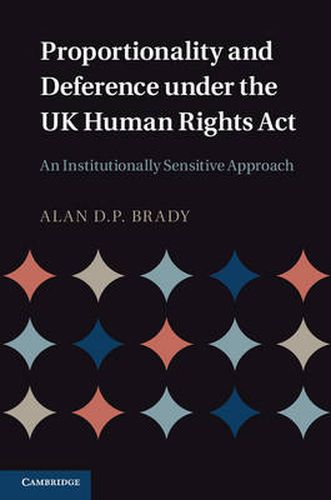Readings Newsletter
Become a Readings Member to make your shopping experience even easier.
Sign in or sign up for free!
You’re not far away from qualifying for FREE standard shipping within Australia
You’ve qualified for FREE standard shipping within Australia
The cart is loading…






The courts use the proportionality test to assess the Convention-compatibility of the full range of government action, from administrative decisions to primary legislation. In applying the test, the courts are often conscious of the need to pay some deference to the expertise and competence of other branches of government. This rigorous analysis of the relationship between proportionality and deference under the Human Rights Act sets out a model of proportionality, drawn from existing case law, which integrates deference within the multi-stage proportionality test. The model is ‘institutionally sensitive’ and can be applied to proportionality-based judicial review of all forms of government activity. The model is shown in operation in three fields that span the full range of government activity: immigration (administrative action), criminal justice (legislation) and housing (multi-level decisions).
$9.00 standard shipping within Australia
FREE standard shipping within Australia for orders over $100.00
Express & International shipping calculated at checkout
The courts use the proportionality test to assess the Convention-compatibility of the full range of government action, from administrative decisions to primary legislation. In applying the test, the courts are often conscious of the need to pay some deference to the expertise and competence of other branches of government. This rigorous analysis of the relationship between proportionality and deference under the Human Rights Act sets out a model of proportionality, drawn from existing case law, which integrates deference within the multi-stage proportionality test. The model is ‘institutionally sensitive’ and can be applied to proportionality-based judicial review of all forms of government activity. The model is shown in operation in three fields that span the full range of government activity: immigration (administrative action), criminal justice (legislation) and housing (multi-level decisions).